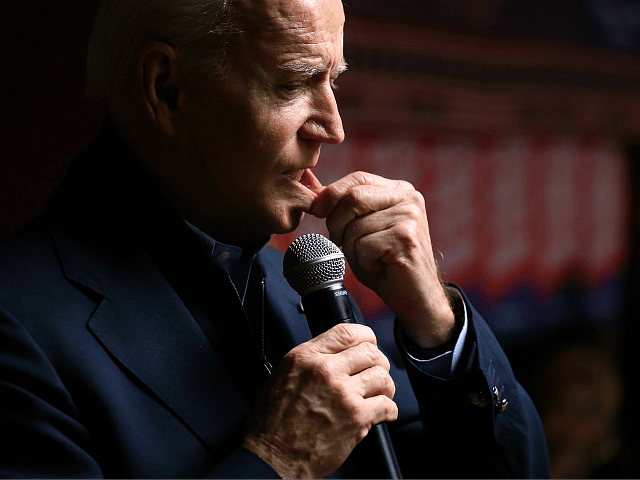Joe Biden has triggered a huge diplomatic row with NATO members Hungary and Poland after appearing to lump them in with Belarus as “totalitarian regimes”, with the Hungarian government demanding answers on his family’s alleged corruption in Ukraine.
“You see what’s happening in everything from Belarus to Poland to Hungary and the rise of totalitarian regimes in the world, and, as well as, this President embraces all the thugs of the world,” said the 77-year-old presidential hopeful at a recent town hall event.
Biden’s seeming comparison of Poland and Hungary, both European Union democracies and parties to the NATO defence alliance in good standing, with Belaurs and other “totalitarian regimes” sparked outrage in both countries, with the Hungarian government of Trump ally Viktor Orbán launching an all-out counter-attack on the Democrats and Biden personally.
“We may still remember the kind of Central European policy the Democrats pursued for eight years; we may still recall the continuous lecturing, accusations and attacks,” railed the country’s foreign minister, Péter Szijjártó, in a video message uploaded to Facebook, denouncing Biden’s comments as having “nothing to do with reality”.
Szijjártó further recalled how, under Obama and Biden, “members of the U.S. diplomatic corps in Budapest openly took part in opposition protests and published ‘extraordinarily biased’ statements with the aim of supporting left-liberal parties and attacking the Hungarian government,” according to the official About Hungary website.
The foreign minister went on the note that Biden seemed “particularly busy” when it came to foreign policy under the Obama administration, suggesting that for a time, “and I exaggerate a bit, Biden spent more of his time outside D.C. in Ukraine than in rural America.”
“This was the time when his son happened to be a chief executive at a key Ukrainian energy company; this was also the time when there were deals in the Ukrainian energy sector that were suspected of being corrupt,” the Hungarian continued.
“[I]t would be best if Joe Biden could answer some of those old questions that have been out there for a while, before attacking Central Europe,” he said, adding: “It would be great if Joe Biden could tell us why he put pressure on the Ukrainian government to fire its chief prosecutor, and how all of this related to the investigation into his son’s Ukrainian energy deals grinding to a halt.”
Poland and Hungary have become regular targets for the global left in recent years, motivated in no small part by their unabashed support for strong borders and opposition to multiculturalism, as well as their evident happiness to build constructive, non-confrontational relationships with the Trump administration.
Within the broader context of the European Union, the pair are resented in Brussels — the principal base of the European Union’s ruling bureaucracy — for their flat refusal to accept compulsory migrant redistribution quotas, which the bloc attempted to force through to manage the fallout from Germany’s effectively unilateral decision in 2015 to open Europe’s borders to mass, irregular immigration from Syria and, as it transpired, the wider third world.
The Hungarian government is also attacked for its vocal criticism of billionaire plutocrat George Soros, with Orbán alleging that some in the EU are “eating out of the hand” of the octogenarian activist. This criticism has been denounced as antisemitic — although Orbán has a powerful supporter against these accusations in the form of the Israeli government.
The Polish government, meanwhile, is attacked for its attempts to reform what it sees as a judiciary corrupted by the legacy of the former communist regime — painted as an attempt to undermine “the rule of law” — and its opposition to “LGBT ideology” in schools.
However, some allege that this keen interest in Poland’s domestic affairs, which was comparatively lacking with the former, europhile-globalist Civic Platform (PO) government attempted to pack the country’s top court, has more to do with its success in attracting U.S. bases away from “delinquent” NATO member Germany — the EU’s dominant member — and its opposition to Germany’s Russian gas projects than any high principles.

COMMENTS
Please let us know if you're having issues with commenting.